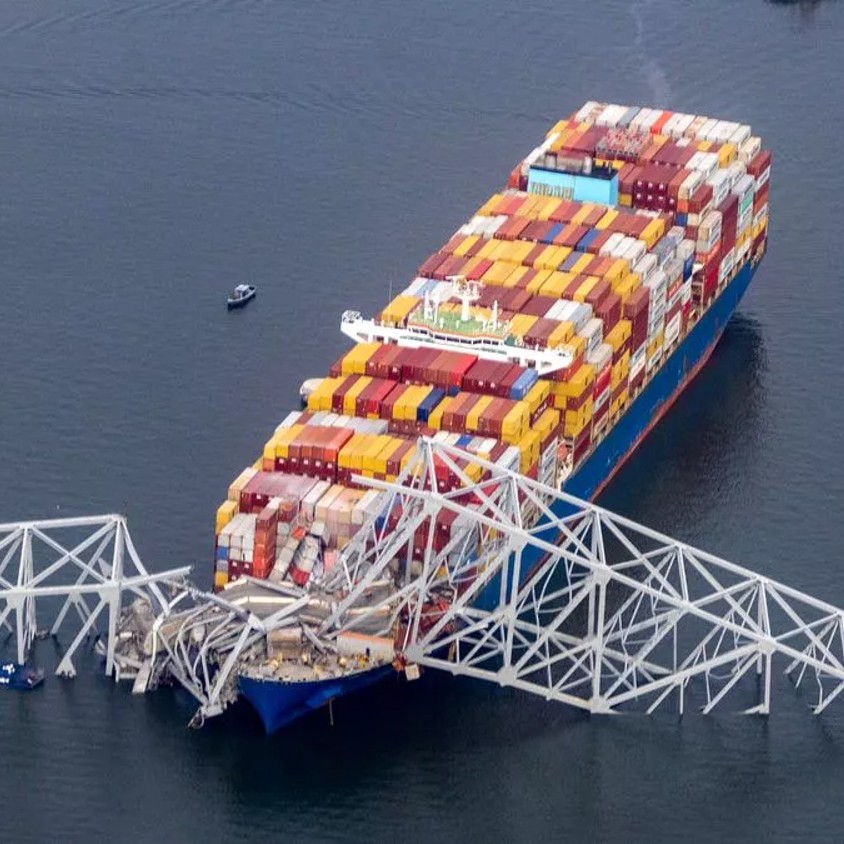Published:
The impact of the container ship Dali’s collision with the Francis Scott Key Bridge in Baltimore is being felt well beyond the borders of the United States. This sad event, which resulted in the permanent suspension of maritime commerce at the Port of Baltimore, casts a shadow over international supply lines and economies that cut across national boundaries and sectors.
The busy Port of Baltimore is the core of this disruption, and the main entry point for American automobile exports. Notable automakers, including General Motors, Ford, Jaguar Land Rover, Nissan, Fiat, and Audi, depend on this port’s smooth functioning to ship more than 750,000 cars each year to locations across the globe. The interruption of marine traffic puts auto deliveries on hold, endangering the operations of automakers, dealers, and customers worldwide.
However, the effects of the bridge collapse are not limited to the automotive industry; they also affect various other companies that depend on the smooth passage of goods via the Port of Baltimore. Global logistics constraints increase pre-existing issues for producers of farm and construction machines, particularly those from the United States, the United Kingdom, and the European Union. In addition, coal exporters, a crucial part of the port’s volume, need more certainty if shipments come to a complete stop, impacting businesses from the United States to foreign markets.
Many people are worried about how the Port of Baltimore’s suspension of marine trade may affect essential participants in the logistics industry and worldwide supply networks. A strategic response to the port’s operating pause is signaled by the announcement made by Danish shipping firm Maersk, whose cargo was on board Dali, that any of its routes will no longer serve Baltimore. Customers are warned by rail and coal businesses about possible disruptions in coal shipments, which exacerbates concerns about the stability of global trade flows.
As the Port of Baltimore struggles to deal with the consequences of the bridge collapse, stakeholders around the globe are dealing with the fallout from disrupted supply lines and unpredictable economic conditions. The halt of marine traffic affects not just the movement of commodities into and out of the United States, but also the economies of all connected regions, including Asia and Europe. In the wake of an unanticipated disaster, firms and nations alike must navigate the complexity of rerouting freight and reducing logistical issues, putting the resilience of global supply networks to the test.
Marine infrastructure fortification and safety protocol enhancement are critical priorities as governments and industry leaders mobilize resources to accelerate recovery efforts and restore routine to interrupted supply lines. The disaster at the Port of Baltimore highlights the vulnerability of globally interconnected supply networks and the pressing need for cooperative action to increase resilience against unforeseen interruptions.
The collapse of the Port of Baltimore bridge serves as an essential reminder of the complicated connections between global economies, trade, and marine infrastructure. The tragedy’s legacy emphasizes the necessity of taking preventative action to protect supply chains and lessen the effects of unplanned interruptions in a world that is becoming more interconnected each day.
File under






